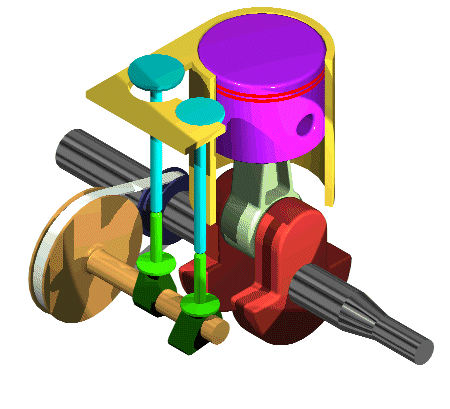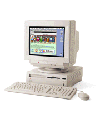

 The last two books that are assigned must be synthesized as you judge to what extent these author's arguments are realistic and should be demonstrated in writing for your final essay and final examination's verbal presentation.
The last two books that are assigned must be synthesized as you judge to what extent these author's arguments are realistic and should be demonstrated in writing for your final essay and final examination's verbal presentation.
| History of Technology |  Loading
|
| The course is about how over time, the division of labor, manufacture, standardization, mechanization and automation have reshaped your current society, our behavior, personal and social values, gender roles, identity and power relations. | |
 |
We take an analytical look at world history, in respect to how tools and work shaped our ancestors and our emerging world-wide culture. |
| Attending Class is critically important for both discussions and a debate we conduct. The outcomes of these classes and the Charles P. Snow debate should be reflected by the information used in your essays. | |
| A piston & valves of an internal combustion engine. | |
|
|
Course organization | My expectations or outcomes. | Books to read | What I look for to reward. | Weekly check-points and progression of concepts | Assignments
|
||||||
|---|---|---|---|---|---|---|
| Olin Library | ||||||
| Core | ||||||
| Clarify | Week One, Week Two, Week Three, Do you realize that tools can be read as are texts? If so give three to five examples of what these "texts" say. | |||||
| Organize | Week Four, Week Five, Week Six, Can you explain how three facets of technology work? List the three facets and apply them to different tool complexes in different time periods and cultures. | |||||
| Reflect | Week Seven, A debate for you to verbally argue over the influence of tools & technology for two weeks based on C. P. Snow's "Two Cultures." | |||||
| Examine & Evaluate | Week Eleven, Week Twelve. Without a deep knowledge of technology, can you describe what happens to people and society? Use examples from each author, then cross compare the same tool complexes from different authors. | |||||
 The Books . . . The Books . . . |
The readings include non-fiction and text books. We start by you having to evaluate two text books by physicist Arnold Pacey and American historian Carroll Pursell. You, if you so choose, have a choice to read some non-fiction in the form of novels, or short stories. But the key to the course is to be able to interpret with explicit examples from each: to what extent Snow and Head, in light of the evidence from Postman, Pursell, and Pacey, are accurate, or inaccurate about our dependence on technological systems. | |||||
The books are listed in the order we begin reading each:
Technopoly, Neil Postman
White Heat, Carroll Pursell
Technology in World Civilization, Arnold Pacey
Mindless: Why Smarter Machines are making Dumber Humans, Simon Head
Visions, Michio Kaku
Why Things Break, Mark E. Eberhart
Among the best novels about contemporary technology about our fascination with gadgets, drugs & guns is White Noise, by Don DeLillo.
Some excellent histories of this subject of technology besides Pacey, Pursell, and Postman:
By the Sweat of their Brow, Melvin Kranzberg, 1975.
Technics and Civilization, Lewis Mumford, 1934.
Why Things Bite Back, Edward Tenner, 1997.
The Machine in the Garden, Leo Marx, 1964.
Meaning in Technology, Arnold Pacey, 1999.
Maze of Ingenuity, Arnold Pacey, 1992.
The Principles of Scientific Management, Frederick Winslow Taylor, 1911.
Critical reading of the books is at the heart of this class and should be used in all assignments for the highest performance and most convincing arguments about how technology changed and in so doing altered social and cultural patterns.
Read the books for examples to describe.
There is an initial interview.
The interviews are written-up separately as an assignment and there should be a summary essay reflecting on the contrasts and commonalities of what people said to you. A minimum of 4 pages reflecting on technology based on what the best interviews told you is usually redrafted to cover the texts for evidence and examples of what the people you interviewed told you.
Read the books carefully and make notes:
He, Carroll Pursell, an historian of technology, says that tools, "Like any other texts they can be read."
• First week: stories about tools and technology. How do tools accomplish what they do? (literally and figuratively)
• Second week: defining what technology is doing to us all in terms of our motor functions, social organizations, beliefs, and imaginations.
• Third week: Despotic demands of hydraulic technology as an example of the forces of technology & the fear that powerful tool complexes instill in their operators.
• Fourth week: How people use tools in a systematic manner because contingent systems are needed to create technical implements.
• Fifth week: What allows related tools in any technological system to operate as they do and influence production, organization, & beliefs?
• Sixth week: How the synergy of machines & mechanisms converged in ways that facilitated the rise of automation and its consequences.
• Seventh to tenth week debates: C. P. Snow's Two Cultures & your choice of arguments to agree with or challenge him about population, poverty, warfare, and education.
• Eleventh week: How to define the features of a new industrialism and the power of emergent properties to transform our society.
• Twelfth week: Are the three revolutions that are driving the present Quantum, Electronic and Biological [QEB] transformation of culture making us dumber?
There is a paper per month, all of these essays are typed, double-spaced with a minimum of twenty-three (23) lines to the page, on numbered pages, with end notes or footnotes and your references clearly indicated in a separate section of the paper.
All work in the class is judged by the following criteria:
All assignments are graded with careful attention to each of these criteria:
{ CLIFS }
All work must be your own, other's ideas or words must be attributed by a specific reference, or else you have committed a fraud, and you are guilty of plagiarism, for which you can fail this class.
In addition to written work, you may post your best and revised writings on the internet at our wiki site.
This posting of your best writing can come from class exercises and should come from your home work. By doing so you can improve your grade and future performance on essays.
There are two oral presentations plus a graded verbal presentation at the final (at the final exam time this consists of describing the third essay you wrote).
1. The initial essay should demonstrate that you can define the intricacy of technology based –only in part– on interviewing three to five people or more about what they think technology means and what they achieve in using tools when compared to what Pacey and Pursell have explained. The essay should explicitly show that you have read these two authors by specific reference to enough of the assigned readings to convey how well you understand when tools help or hinder the accomplishment of a task.
2. The second essay, for the mid–term is a 5-7 page analysis of a technology, defining technology as a system of related tools, devices, and inventions as with examples taken and examined from the books. In writing demonstrate how you think society has changed in the past due to technology by referring to three or more arguments based on Pursell, Pacey, and Postman. For example you may describe especially the way people lived and once related to one another due to the use of different tool (length: five to seven pages).
3. The last essay is 6-9 pages, is the final exam, but a draft is due before the end of class, so you can redraft the essay. The substance of the essay comes from the readings from all the texts, and is based on a debate we conduct in class in teams about the essay by Charles Percy ( C. P. ) Snow– The verbal presentation at the final exam hour is a summary of your final written paper converted into a four minute oral discourse to the class.
It should demonstrate with examples – if not evaluate the impact of technology on our behavior, beliefs, habits, and values.
It must have formal references by either footnotes or end notes and a bibliography of sources you have read to support your examples, arguments, and facts.
Evaluate written work by several means.
- Regular attendance & active participation (may earn one/fifth of your grade) in discussions of passages from the texts:
- Explain what a word means by using it in a posting on the wiki.
- How may a tool or tools be considered a text that we can read for meaning?
- Describe three examples of survival as opposed to fine technology.
- What are machines?
- What devices truly changed their societies when the were widely used?
- Make an analogy based on existing analogies made by two or more authors
- Explain verbally and in writing the aspects or dimensions of any technology using Pursell and Pacey.
- Using your best products from free writing, develop the concept you explain best in relation to three authors:
- Postman as a critic
- Describe inventions from Pursell
- Use three examples from Pacey of adaptive responses to changing tool complexes.
Pursell | Pacey–World | Postman | Head | Tenner |Pacey–meaning| Eberhart | Snow | Kaku | Boulding | Delillo | Kranzberg
| Postman–Tech | Postman–Television |

 |
||
|---|---|---|
| Tools of Toil: what to read. | ||
| Tools are historical building blocks of technology. | ||